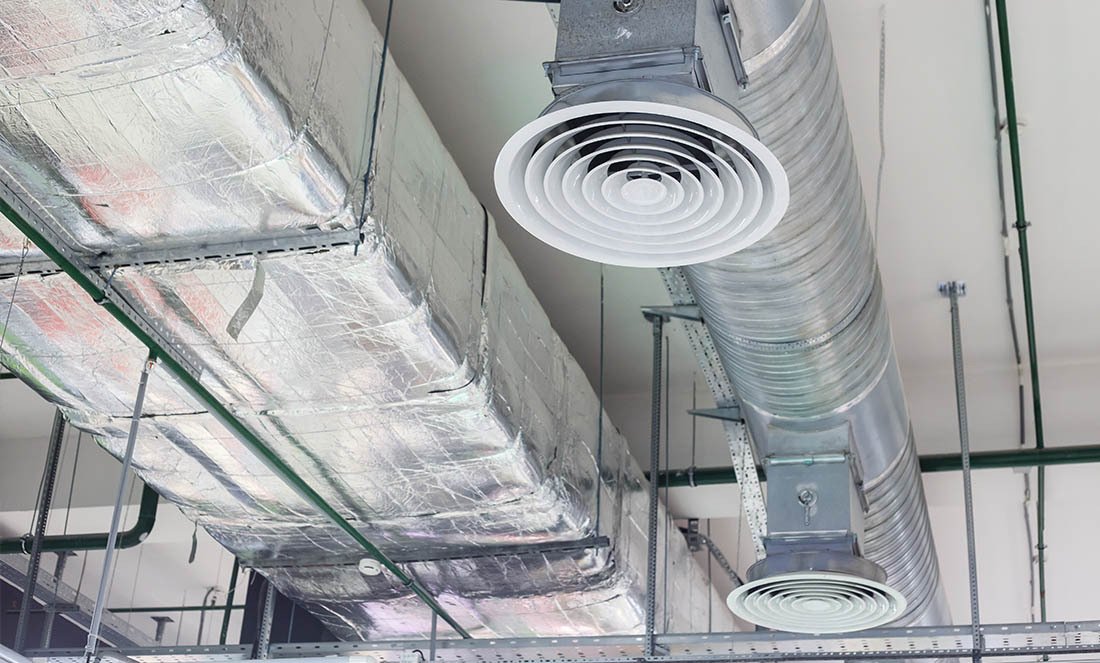In today’s world, energy efficiency is no longer just a trend but a necessity. As we become increasingly aware of our environmental impact, many homeowners and businesses are looking for ways to reduce their energy consumption. One of the most effective ways to achieve this is by investing in energy efficient HVAC systems. Heating, Ventilation, and Air Conditioning (HVAC) systems are essential for maintaining comfort in our homes and workplaces, but they can also be significant energy consumers. By opting for energy efficient HVAC systems, you can enjoy a comfortable indoor environment while reducing your energy bills and carbon footprint. Let’s explore why these systems are the best choice for a sustainable future.
What Are Energy Efficient HVAC Systems?
Energy efficient HVAC systems are designed to use less energy than standard systems while still providing the same level of comfort. These systems utilize advanced technology to heat, cool, and ventilate your space more effectively. By optimizing performance, they minimize waste and ensure that you get the most out of every watt of electricity.
For example, many modern HVAC systems come with variable-speed motors. Unlike traditional systems that operate at full speed all the time, variable-speed motors adjust the airflow based on your heating or cooling needs. This leads to significant energy savings, especially during moderate weather when you don’t need maximum power.
Benefits of Energy Efficient HVAC Systems
1. Lower Energy Bills
One of the most compelling reasons to switch to energy efficient HVAC systems is the potential for lower energy bills. Traditional HVAC systems often consume a lot of energy, especially during peak usage times. On the other hand, energy efficient systems are designed to operate using less power, which can significantly reduce your monthly utility costs. Over time, these savings can offset the initial investment in a more efficient system.
2. Reduced Environmental Impact
The push for sustainability is stronger than ever, and energy efficient HVAC systems are a key component in reducing our environmental footprint. These systems use less energy, which means they produce fewer greenhouse gas emissions. By reducing your reliance on fossil fuels, you’re contributing to a healthier planet. In addition, some systems even use eco-friendly refrigerants that have a lower impact on the ozone layer.
3. Enhanced Comfort
Energy efficient HVAC systems do more than just save energy—they also improve comfort. With features like programmable thermostats and zone control, you can customize the temperature in different areas of your home or office. This ensures that every room is comfortable, no matter the weather outside. Additionally, energy efficient systems often have better humidity control, leading to improved indoor air quality.
4. Longer Lifespan
Investing in energy efficient HVAC systems can also extend the lifespan of your equipment. Because these systems are designed to run more efficiently, they experience less wear and tear. This means fewer breakdowns and repairs, which translates to lower maintenance costs over time. A well-maintained energy efficient system can last 15-20 years or even longer, providing excellent value for your investment.
Key Features of Energy Efficient HVAC Systems
If you’re considering upgrading to an energy efficient HVAC system, there are several features to look for:
1. SEER and EER Ratings
The Seasonal Energy Efficiency Ratio (SEER) and the Energy Efficiency Ratio (EER) are important metrics that indicate how efficient an HVAC system is. The higher the SEER and EER ratings, the more energy-efficient the system. Look for systems with high SEER and EER ratings to maximize your energy savings.
2. Programmable Thermostats
A programmable thermostat allows you to set different temperatures for different times of the day. For instance, you can program the system to use less energy when you’re away from home and increase comfort when you return. This not only saves energy but also adds convenience to your daily routine.
3. Variable-Speed Motors
As mentioned earlier, variable-speed motors are a game-changer for energy efficiency. They adjust the speed of the fan to match your heating or cooling needs, which helps reduce energy consumption and enhances comfort. With a variable-speed motor, your HVAC system won’t have to work as hard, leading to greater longevity.
4. Zoned Heating and Cooling
Zoned HVAC systems divide your home or office into different zones, each with its own thermostat. This allows you to heat or cool only the areas that are being used, rather than wasting energy on empty rooms. Zoned systems are especially beneficial for larger spaces with multiple rooms.
How to Choose the Right Energy Efficient HVAC System
Selecting the right energy efficient HVAC system for your needs can seem overwhelming, but it doesn’t have to be. Here are some factors to consider:
1. Size of the System
Choosing the correct size for your HVAC system is crucial. A system that is too small won’t be able to heat or cool your space effectively, while a system that is too large will waste energy. It’s best to have a professional conduct a load calculation to determine the appropriate size for your home or office.
2. Type of System
There are various types of energy efficient HVAC systems available, including central air conditioners, heat pumps, and ductless mini-splits. Each type has its own set of advantages, so it’s important to choose one that fits your specific needs and budget.
3. Cost and Rebates
While energy efficient HVAC systems may have a higher upfront cost, they can save you money in the long run through lower energy bills. Additionally, many states and utility companies offer rebates and incentives for upgrading to energy efficient systems, which can help offset the initial investment.
Tips for Maximizing the Efficiency of Your HVAC System
Even if you already have an energy efficient HVAC system, there are several steps you can take to ensure it operates at its best:
1. Regular Maintenance
Regular maintenance is essential for keeping your HVAC system running efficiently. This includes changing air filters, cleaning ducts, and scheduling professional tune-ups. A well-maintained system will not only last longer but also perform better, reducing energy consumption.
2. Use a Smart Thermostat
Smart thermostats take programmable thermostats to the next level. They learn your preferences over time and adjust the temperature automatically to maximize energy savings. Some models can even be controlled remotely via a smartphone app, giving you greater control over your energy usage.
3. Seal and Insulate Your Home
A well-sealed and insulated home is crucial for maximizing the efficiency of your HVAC system. Air leaks and poor insulation can cause your system to work harder than necessary, leading to higher energy bills. By sealing gaps around doors and windows and adding insulation to your attic and walls, you can reduce energy loss.
The Future of Energy Efficient HVAC Systems
The HVAC industry is continuously evolving, with new technologies being developed to improve energy efficiency. For instance, advancements in geothermal heat pumps, solar-powered HVAC systems, and smart HVAC technology are making it possible to achieve even greater energy savings. As the demand for sustainability grows, we can expect to see even more innovative solutions in the future.
Conclusion
Energy efficient HVAC systems are not just a smart investment—they’re a commitment to a sustainable future. By choosing an energy efficient system, you can enjoy lower energy bills, reduced environmental impact, enhanced comfort, and a longer-lasting system. Whether you’re upgrading an existing system or installing a new one, there’s never been a better time to make the switch.
Remember, the key to getting the most out of your energy efficient HVAC system is to choose the right model for your needs, maintain it regularly, and take steps to improve your home’s overall energy efficiency. With these strategies, you can enjoy a comfortable indoor environment while doing your part to protect the planet.
By investing in energy efficient HVAC systems, you’re not just saving money—you’re making a positive impact



